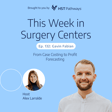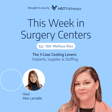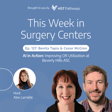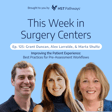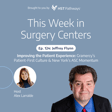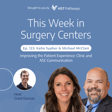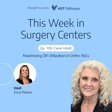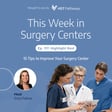
Jim Stilley - How Medical Assistants Can Help with Staffing Issues & Reduce Spend
Almost every surgery center is struggling with two issues right now – staffing shortages and rising costs. By hiring Medical Assistants, you might be able to tackle both problems at once. Jim Stilley, the CEO at Great Lakes Orthopaedic Center, currently the largest practice north of Grand Rapids, joins us today to share his perspective on hiring Medical Assistants where appropriate might just be the answer you're looking for.
In our news recap, we'll cover how Smartwatches can impact Pacemakers, the relationship between ChatGPT and the healthcare industry, four ways tablets are transforming patient care, and the Nurse of the Year in Uganda.
Articles Mentioned:
Could Your Smartwatch Interfere With Your Pacemaker?
Why ChatGPT In Healthcare Could Be a Huge Liability, Per One AI Expert
Revolutionizing healthcare: 4 ways tablets are transforming patient care
Ugandan Nurse Agnes Nambozo Makes Treacherous Climb to Patients
Brought to you by HST Pathways.


